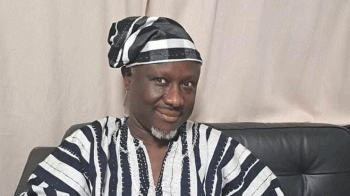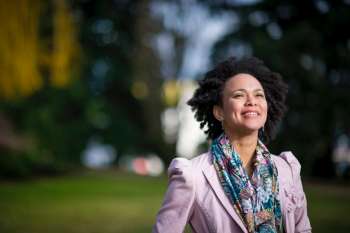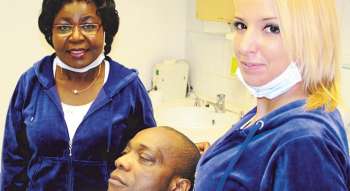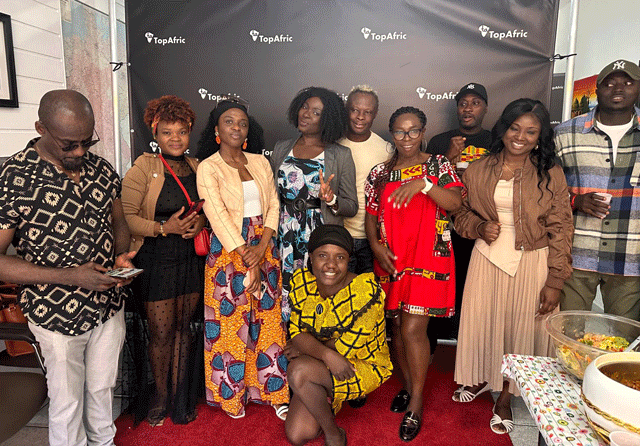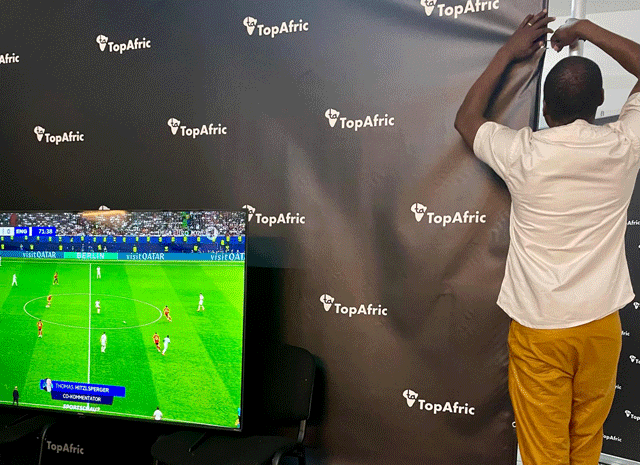Cities around the world are facing threats of rising sea levels and frequent severe flooding. A couple of cities have mastered the task of tackling floods successfully, hence managing the Akosombo Dam spillage effectively and addressing the associated challenges should not be that messy, we knew the spillage of the Bagre dam takes place in either the month of August or September every year when Burkina Faso have excess water. we knew the water level is arising, a clear indication that Volta River Authority (VRA) must start releasing the water gradually. Unfortunately, the untimely and inability to manage the excess waters has led to serious flooding along the volta basins.
To tackle this multifaceted challenge, a comprehensive and coordinated approach is required by the Volta River Authorities, the country pays them well, hence should expect them to do better.
One of the fundamental aspects of managing the Akosombo Dam spillage is the need for vigilant monitoring. The Volta River Authority (VRA) must closely track water levels and weather forecasts to predict potential spillage accurately. This proactive approach ensures that spillage is controlled and gradual, allowing downstream areas to be adequately warned and prepared. It is not enough to continue saying we warned those along the riverbanks without providing them alternative shelters.
Regular maintenance and inspection of the dam are crucial. The structural integrity of the dam must be maintained to prevent unexpected issues that could lead to uncontrolled spillage. By addressing maintenance needs promptly, the risk of uncontrolled spillage can be significantly reduced. Given the current harsh climatic changes, the dam's managers should remain vigilant to avoid disastrous scenarios such as flooding towns along the rivers, like Mepe, Battor, Aveyime Sogakope the Ada townships, being washed into the sea.
When I read in the news that there is light off (Dumsor) in most of the major cities due to lack of gas to fuel the generators at the same time we are spilling excess water it tells we aren’t ready for the twenty first century.
As a matter of facts, the excess water should be a blessing not a curse, it can be used for hydroelectric power generation to meet increased energy demands during the rainy season. Multiple smaller dams, like the Kpong Dam, could be built to make use of the excess water and generate additional power. Excess water can be directed to irrigation systems to support year-round farming, enhancing food security.
Upstream, reservoirs and water storage systems can be expanded to capture and store excess water for future use.
VRA's Effective Reaction:
The Volta River Authority should have a well-defined emergency response plan for spillage events. This plan should include communication strategies, coordination with local authorities, and well-practiced procedures to respond swiftly and effectively. Regular training and drills for VRA staff and local responders can improve readiness and ensure that all parties are well-prepared to manage spillage incidents.
Learning from Other Countries:
Studying flood management practices in countries with a history of effectively dealing with floods, such as Hamburg and Amsterdam, can provide valuable insights. These regions employ strategies like flood defences, early warning systems, and urban planning to mitigate the impact of floods.
Hamburg’s Dikes and Riverbanks:
Adaptive Dikes and Riverbanks: Hamburg has invested in adaptive dikes and riverbanks, which can be raised or lowered depending on the water levels. These barriers provide versatile flood protection and can be adjusted to manage fluctuating tides and precipitation.
Amsterdam's Polder System
The city's approach to flood prevention includes, Polder Systems: Amsterdam utilizes a polder system, where land is intentionally reclaimed and managed in sections known as polders. These polders have their water levels controlled, providing a reliable means to manage excess water during heavy rainfall or flooding.
Implementing similar strategies and best practices from these countries can significantly enhance Ghana's flood prevention and mitigation efforts.
Donation for Flood Victims:
Flood events often result in the displacement of communities and individuals. To provide immediate relief to flood victims, donations should be directed toward hygienic items, shelter, food, clean water, and medical assistance. These essentials help mitigate the immediate impact of flooding on affected populations.
Long-term support for flood victims should include initiatives aimed at rebuilding homes and infrastructure. Additionally, efforts should be made to help affected communities become more resilient to future floods through disaster risk reduction programs and community development projects.
Help for Flood Victims:
Community-based disaster risk reduction programs are invaluable in helping communities prepare for floods and respond effectively. These programs educate residents on disaster preparedness, evacuation plans, and response protocols.
Without science, without data, we can use the Bagre dam as an indicator, the excess water results in flooding in low lying communities in Burkina Faso and Ghana, eventually the excess water will ultimately affect communities located downstream the White Volta and excess water flowing into the volta lake.
It is true that these days only few people think for the masses, let’s look for them to think for us, hence one day the whole of Tema and Accra shall be wiped into the sea.
Desmond John Beddy
Empowering Tomorrow's Craftsmen
In a world where collaboration often leads to extraordinary achievements, the partnership between TopAfric, the organizers of the African Youth Education Awards (AYEA), and the Hamburg Chamber of Crafts (Handwerkskammer) is nothing short of remarkable.
This alliance promises to bring forth a myriad of opportunities and benefits for young Africans seeking to explore the world of craftsmanship and trades. The joint participation in the AYEA 2023 event on Saturday, 4th November 2023, at the Chambers of Commerce in Hamburg is a testament to their shared vision.
AYEA's core objective is to celebrate the educational accomplishments of young African individuals in Germany. By partnering with the Hamburg Chamber of Crafts, AYEA extends its support and recognition to a wider array of talents, especially those venturing into the world of craftsmanship. This collaboration will unlock opportunities for young individuals who aspire to pursue vocational training and technical education. It provides them with a platform to showcase their talents and skills, opening doors to fulfilling careers.
The Hamburg Chamber of Crafts has a rich legacy of promoting vocational training and skill development. By joining forces, TopAfric and the Handwerkskammer can empower young Africans in Germany with the skills and knowledge needed to excel in various crafts and trades. This empowerment is not only about enhancing their employability but also about nurturing their self-confidence and self-sufficiency. Craftsmanship offers the chance for individuals to hone their abilities and craft a successful future.
The field of craftsmanship is not immune to change; it evolves with time and technological advancements. By collaborating, AYEA and the Handwerkskammer can encourage innovation and the adoption of modern techniques within the African community. This partnership offers young talents the opportunity to explore, adapt, and contribute to innovative developments in craftsmanship. It positions them as agents of progress in the evolving world of trades.
The beauty of this partnership lies in its ability to champion inclusivity and diversity within the craft sector. It paves the way for African youth in Germany to explore vocational and technical professions without prejudice. By embracing diversity, this collaboration enriches the craft community with fresh perspectives, ideas, and approaches. It serves as a testament to the fact that talent knows no boundaries.
Vocational education and technical professions often face challenges in attracting young talents. Many individuals are unaware of the promising career opportunities that lie within the craft sector. The collaboration between AYEA and the Hamburg Chamber of Crafts acts as a bridge. It bridges the information gap and aids young Africans in making informed choices regarding their educational and career paths.
Partnering with an esteemed institution like the Hamburg Chamber of Crafts widens the horizons for AYEA. It opens doors to a broader network of professionals, mentors, and potential employers. This expanded network is a treasure trove of opportunities for African youth, providing mentorship, internships, and job openings. The alliance strengthens the support system for young talents.
AYEA's emphasis on education aligns seamlessly with the Handwerkskammer's dedication to vocational training. By working in tandem, both organizations contribute to the long-term sustainability of educational programs and support systems for African youth in Germany. This commitment to sustainability ensures that young individuals have continuous access to resources, knowledge, and guidance on their journey.
The collaborative participation of TopAfric and the Hamburg Chamber of Crafts in AYEA creates awareness within the African community about the significance of vocational and technical education. It underscores the importance of craftsmanship and its role in fostering self-reliance, entrepreneurship, and economic sustainability. By shedding light on these opportunities, it encourages more young individuals to explore and embrace the world of trades.
The partnership is a transformative step towards empowering young African individuals. It nurtures their aspirations, enhances their skills, and opens doors to fulfilling careers in craftsmanship. This collaboration is a beacon of inclusivity, innovation, and sustainability, ensuring that the future generation has the tools and knowledge needed to shape their destinies in a rapidly evolving world.
Desmond John Beddy
The prospect of departing this world with a lingering sense of unfulfillment weighs heavily on my heart. My earliest school memories take me back to a dilapidated classroom situated in a town deprived of fundamental amenities like electricity, clean drinking water, and a clinic.
Today, I find myself questioning, "What have I given back to this community?" The response to this question is profoundly disheartening—nothing.
From a young age, I grasped the principle that those who are fortunate must also give generously in return. It's important to note that this giving is not limited to monetary contributions; it also involves sharing un-used clothing with those in desperate need. Regrettably, I must confess that I have not done enough in this regard.
My dear friend, I trust that you can empathize with my frustration. I understand that it's implausible to fulfill all of my dreams, yet I remain convinced that there's much more I can achieve. The same potential exists for you.
I've frequently pondered the notion of what transpires if my noble intentions and visions go unrealized. In fact, I previously emphasized this point in Nürnberg, Germany when I received recognition for my community contributions: "Success is only achieved when you have prosperous successors who carry forward your work."
Is it not plausible that, were I to pass away today, the distinguished African Youth Education Awards (AYEA) might slip into obscurity? Success transcends the mere initiation of endeavors; it hinges on guaranteeing their long-term sustainability.
Far too often, we are inclined to launch fresh initiatives while abandoning existing projects—both in our home countries and abroad. We frequently prioritize the creation of new endeavors catering to the elite, neglecting those aimed at uplifting the underprivileged.
I am acutely aware that my grave might bear witness to my sorrow as I witness the marginalized status of the vulnerable. For several years, I have advocated for the principles of "Come Together, Work Together, and Stay Together" (CWS) to no avail.
Coming together for a shared purpose constitutes only the inaugural step; it's equally vital that we continue working together and, most importantly, stay united. Within this unity, teams grow stronger, deficiencies are addressed, and we achieve medium and long-term objectives.
A close friend once commended my achievement in compiling "The History of Ghanaians in Germany." However, I am unable to rest content until millions have access to the book, millions have perused its contents, and it has significantly impacted lives.
My aspiration is to see the book meticulously edited and readily available in all German schools, universities, libraries, cultural centers, and social hubs. Unfortunately, this vision remains unfulfilled.
Despite my profound love for writing and an unwavering passion to effect change, I have failed to write consistently. I acknowledge that I haven't done enough, despite possessing the means to contribute more. Were I to depart today, my soul would bear the burden of an unfulfilled purpose until the end of time.
Desmond John Beddy
https://www.beddy.de
Africa, the second-largest and second-most populous continent on Earth, is a land of immense potential. With its rich natural resources, diverse ecosystems, and a youthful population, Africa has all the ingredients for rapid development. However, the road to progress is riddled with challenges, and it has become increasingly clear that Africa cannot achieve its full potential without a robust foundation in STEM (Science, Technology, Engineering, and Mathematics). In this article, we will explore why STEM is indispensable for Africa's development.
Science: Understanding and Innovating:
Science is the foundation of all progress. It is through scientific exploration and discovery that we gain insights into the world around us. In Africa, harnessing the power of science is vital for sustainable development. Science enables the continent to understand and mitigate the impacts of climate change, conserve its unique biodiversity, and improve healthcare and agriculture.
African scientists have the potential to make groundbreaking discoveries, from developing drought-resistant crops to finding solutions for infectious diseases. By investing in scientific research and education, Africa can unlock the door to innovation and self-reliance, reducing its dependence on foreign technologies and expertise.
Technology: Bridging Gaps and Expanding Opportunities:
Technology is the driving force behind the modern world. In Africa, technology can play a pivotal role in bridging infrastructure gaps and expanding economic opportunities. Access to the internet, mobile technology, and digital tools can empower Africans to connect, learn, and access markets like never before.
Technological innovation can also address critical challenges, such as clean energy solutions, efficient transportation systems, and improved access to clean water and sanitation. To achieve these goals, Africa must invest in tech education and foster a culture of innovation, allowing its people to create technology tailored to its unique needs.
Engineering: Building a Strong Foundation:
Engineering is the practical application of scientific knowledge. It plays a fundamental role in infrastructure development, from building roads and bridges to constructing energy-efficient buildings and improving transportation networks. In Africa, engineering is crucial for creating a solid foundation for economic growth and social progress.
By investing in engineering education and nurturing a strong engineering workforce, Africa can reduce its reliance on foreign contractors and consultants. This will not only save money but also ensure that projects are tailored to local needs and conditions, leading to more sustainable development.
Mathematics: The Language of STEM
Mathematics is the language that underpins all STEM fields. It is essential for problem-solving, data analysis, and critical thinking. In Africa, a strong foundation in mathematics is vital for producing competent scientists, technologists, engineers, and mathematicians.
Mathematics education can empower Africa's youth to excel in STEM disciplines, enabling them to compete globally and contribute to the continent's development. Moreover, mathematical skills are highly transferable and can be applied in various sectors, from finance to healthcare, making them invaluable for Africa's progress.
The importance of STEM (Science, Technology, Engineering, and Mathematics) in Africa's development cannot be overstated. These fields provide the knowledge, skills, and tools necessary to address the continent's most pressing challenges and unlock its full potential. By investing in STEM education, research, and innovation, Africa can become a hub for sustainable development, self-reliance, and prosperity.
STEM is not a luxury but a necessity for Africa's future, and it is high time for governments, institutions, and individuals to recognize and prioritize its role in shaping the continent's destiny. With a strong STEM foundation, Africa can rise to the challenges of the 21st century and become a global leader in innovation and progress.
Desmond John Beddy
The causes of coups in Africa are multi-faceted and can vary from country to country. However, some common underlying factors can be identified:
Political Instability: Many African countries experience chronic political instability, characterized by weak democratic institutions, an absence of checks and balances, and a history of authoritarian rule. This creates an environment where power struggles and coups become more likely.
Corruption and Mismanagement: Widespread corruption, economic mismanagement, and unequal distribution of resources contribute to public frustration and dissatisfaction. When governments fail to address these issues, it can lead to protests, social unrest, and potential coups.
Ethnic and Tribal Tensions: Africa is a diverse continent with various ethnic and tribal groups. When these divisions are exploited by political leaders or result in discriminatory policies, it can heighten tensions and create conditions for coups.
Socioeconomic Factors: High levels of poverty, unemployment, and inequality can contribute to social unrest and dissatisfaction with the government. These grievances can be exploited by military personnel or other groups seeking to seize power.
Addressing coup d'états in Africa requires a combination of short-term and long-term measures:
Strengthen Democratic Institutions: Building strong democratic institutions, including an independent judiciary, free press, and accountable governance, is crucial. This can be achieved through constitutional reforms, electoral reforms, and capacity building for civil society organizations.
Promote Good Governance and Fight Corruption: Tackling corruption and ensuring accountability are vital in preventing coups. African governments should prioritize anti-corruption measures, enforce existing laws, and promote transparency in public institutions.
Economic Development: Creating inclusive economic growth and reducing income inequalities can address socioeconomic grievances. Governments should implement effective policies to reduce poverty, create jobs, and provide opportunities for all citizens.
Conflict Prevention and Resolution: Addressing ethnic and tribal tensions through dialogue, mediation, and inclusive governance can help mitigate the conditions that fuel coups. Regional organizations, such as the African Union, should play an active role in conflict prevention and resolution.
International Support: The international community can support African countries by providing financial assistance, technical expertise, and training to strengthen democratic institutions, promote good governance, and encourage economic development.
It is important to note that every country's situation is unique, and tailor-made solutions should be designed to address specific challenges.
Desmond John Beddy
https://beddy.de

"Do not follow where the path may lead. Go instead where there is no path and leave a trail." -Ralph Waldo Emerson
Many sub-Saharan African countries are grappling with economic and political challenges that have hindered their development. In order to shed light on the importance of leadership for the progress of a nation, it is crucial to emphasize why leaders must possess qualities such as competence, selflessness, and vision.
Competence:
Competence in leadership is paramount because it ensures that leaders have the knowledge and skills necessary to make informed decisions for the betterment of their countries. In many sub-Saharan African nations, political instability and economic mismanagement have been rampant due to leaders lacking the necessary expertise. Competent leaders understand the complexities of governance, economics, and diplomacy, which enables them to formulate and execute effective policies. They are equipped to address issues like constitutional manipulation, coup d'etats, and the mismanagement of resources that have plagued the region.
Selflessness:
Selflessness in leadership implies that leaders prioritize the welfare of their citizens above personal gain. In contrast, nepotism, meritocracy, and corruption have been pervasive in many African governments, leading to the inefficient allocation of resources and positions. Selfless leaders are driven by a genuine desire to serve their people, which leads to fairer and more equitable policies. They are less likely to engage in corrupt practices and more likely to promote transparency and accountability. By putting the interests of their nations first, selfless leaders can mitigate economic and political challenges.
Visionary:
Visionary leaders possess a clear and forward-thinking perspective for their countries. They are capable of setting long-term goals and strategies that can guide a nation toward prosperity. Many African countries have suffered from over-dependence on natural resources, which are susceptible to price fluctuations. Visionary leaders recognize the importance of diversifying their economies into sectors like manufacturing, technology, and services. This diversification creates resilience and sustainability in the face of economic shocks. Additionally, visionary leaders foster innovation and entrepreneurship, which can stimulate economic growth and reduce poverty.
To break the cycle of poverty and foster development, sub-Saharan African countries must take a holistic approach. This includes providing opportunities for their youth through education and employment, investing in critical infrastructure, ensuring access to healthcare and quality education, and reducing reliance on external aid and loans. Furthermore, addressing political instability, poor governance, and corruption is vital for creating an environment conducive to economic growth and development.
In conclusion, leadership is indeed essential for the development of a country, especially in the context of sub-Saharan Africa. Competent, selfless, and visionary leaders are crucial in addressing the multifaceted challenges faced by these nations. With the right leadership qualities, African countries can overcome their economic and political obstacles and work towards sustainable growth and prosperity for their citizens.
Desmond John Beddy
https://beddy.de
CEO of Livenat SAS, Dr. France Aimée Gaïl, in an interview on Radio TopAfric’s health show, encouraged the use of natural-based cosmetic products because it has proven to be a much healthier option.
Dr. France Aimée Gaïl graduated from the University of Orléans with a PH.D. in Organic Chemistry and has expertise in the Pharmaceutical field as well as product development. Her experience as a chemist has driven her to develop healthy products for all hair types.
The company’s brand, DEVANCE COSMETIQUES based in France, has since 2013 produced the best natural based cosmetic products, she says.
DEVANCE COSMETIQUES has products for all hair types, namely; shampoos, conditioners, hair oil, to mention a few.
In response to a question from a listener, Dr. France Aimée reiterated that people experiencing alopecia, a common autoimmune disorder that often results in unpredictable hair loss, can use DEVANCE COSMESTIQUES natural based oil to restore hair mostly if the condition is not genetically transmitted.
WHAT ARE NATURAL BASED COSMETICS?
Natural based cosmetics are cosmetics made from raw materials sourced from nature, such as plants and minerals, and a renewable natural source.
People who live in Hamburg can access the hair products at the Modern Hair Creation Salon, Lübecker Straße 82, 22087 Hamburg.
Alternatively, one can visit www.devance-cosmetiques.com or place your order on Amazon.de.
A new discovery could explain why obese people are more likely to develop cancer, scientists say. A type of cell the body uses to destroy cancerous tissue gets clogged by fat and stops working, the team, from Trinity College Dublin, found.
Obesity is the biggest preventable cause of cancer in the UK after smoking, Cancer Research UK says. And more than one in 20 cancer cases - about 22,800 cases each year in the UK - are caused by excess body weight. Experts already suspected fat sent signals to the body that could both damage cells, leading to cancer, and increase the number of them.
Now, the Trinity scientists have been able to show, in Nature Immunology journal, how the body's cancer-fighting cells get clogged by fat. And they hope to be able to find drug treatments that could restore these "natural killer" cells' fighting abilities.
'Lose some weight'
Prof Lydia Lynch said: "A compound that can block the fat uptake by natural killer cells might help. "We tried it in the lab and found it allowed them to kill again.
"But arguably a better way would be to lose some weight - because that is healthier for you anyway." Dr Leo Carlin, from the Cancer Research UK Beatson Institute, said: "Although we know that obesity increases the risk of 13 different types of cancer, we still don't fully understand the mechanisms underlying the link.
"This study reveals how fat molecules prevent immune cells from properly positioning their tumour-killing machinery, and provides new avenues to investigate treatments. "A lot of research focuses on how tumours grow in order to find metabolic targets to stop them, so this is a reminder that we should consider the metabolism of immune cells too."
Four years ago a publication was made Ghanaians living in Hamburg, Germany demanding answers from authorities about the rampant death of their countrymen. Years have passed but the toll of such deaths has neither ceased nor decreased. It is clear that death is inevitable but the frequency and circumstance is what is worrying.
It is upon this back drop that a discussion on that topic was held on the health show hosted by Effya on TopAfric radio and was covered by the NDR Das. This could be a huge step to drawing the attention of the right authorities to come to the aid of the Ghanaian community.
Within the public sphere the theory such as doctors intentionally killing their victims is purported to be one of the causes of such deaths.
During the radio discussion the following factors were enumerated to be possibly contributing to such premature death; Irresponsible self medication, unhealthy and sedentary life styles, physical inactivity, under utilisation of the health care system, religious and cultural beliefs and practices, ignorance and lack of information, double and quadruple jobs to cater for families and acquisitions of properties back home, genetics, environment etc.
Recommendations to counteracting the problem will be to negate the above enumerated possible causes.
As public Health scientists we see the issue as public health emergency which threatens the human security within the Ghanaian community in Hamburg. An anecdotal evidence of the issue at stake could be true but not enough deal with the problem.
To a achieve the desired result, a holistic approach is needed hence an urgent need for scientific research that encompasses needs assessments , data collection, analysis and findings to draw and implement a comprehensive public health intervention which is participatory and culturally tailored to mitigate the problem.
The negative impacts of the continuous premature death of Ghanaians cannot be overemphasised. It affects the families and society at large as well as the economy here in Germany and Ghana. For this reason we would like to call on stakeholders to support the worthy course by funding such project. We are looking up to the Ghana Embassy, German Health ministry and other such interested institutions to heed to this call so as to ensure that such premature deaths would be a thing of the past through the implementation of public health interventions.
Ghanaians dying premature in Hamburg!!!
Aileen Ashe (Public Health scientist and language and culture mediator)
Ursula D’Almeida (pharmacist and Public Health Scientist)
There is hardly anything that contributes to a better mood or offers more fun than one of the most beautiful pastimes in the world. But the importance of a healthy and regular sex life really is often underestimated.
Here are eight good reasons why you should not neglect your sex life. Because this is what happens to your body when you stop having sex:
Why a healthy sex life not only ensures a good mood
1. You get sick more often
If you don’t have sex for a long time, your immune system becomes significantly weaker. Germs then have an easier job of spreading in your body and you can catch a cold or get the flu more easily. So, just by having more sex, you can help keep your herbal remedy teas in the closet!
2. Your stress levels increase
Sex is a great way to reduce your stress levels. Regular sex reduces the amount of stress hormones and makes you feel more relaxed in everyday life. Without this important balance, you could become a ticking time bomb!
3. It’s harder for you to get aroused
It’s hard to believe, but true: If you don’t regularly “practice,” it’s difficult for a lot of people to become aroused. Men can experience problems having erections and it can be harder for women to have an orgasm. So, you have to stay on top of things to make sure the “switch” always remains on.
4. Your dreams change
Some people suddenly notice that they have strange dreams when their sex life is suffering. It can mean that you unexpectedly start dreaming about sex or have orgasms in your sleep.
5. Over time you lose your desire to have sex
If your body notices that you’re having a prolonged dry spell in the sexual sense, the production of sex hormones reduces. You feel less like having sex if you have been abstinent for a while. In addition, your libido will eventually feel different. And this is all due to the fact that your sex hormones are slowly vanishing.
6. You’ll feel more distance between your partner and yourself
When a couple in a relationship only rarely sleep together, their interpersonal distance becomes greater. You may start to have feelings of uncertainty related to your partner and other people will seem more attractive to you.
7. It lowers your feeling of self-worth
It is not surprising that a person’s self-worth is harmed, if that individual does not regularly feel desired. But a lack of sex has been proven to affect a person’s well-being, leading to sadness or depression when sex is absent from their lives. Studies have shown that having sex regularly helps fight depression. It can sometimes even work as well as antidepressants.
8. Your risk of cancer increases
For men, the risk of prostate cancer increases when they don’t have sex for a longer period of time. So it’s not a bad idea for men to “flush out” the pipes. Because then the risk is significantly reduced.
Well, if all this isn’t motivation enough, then I don’t know what is! For all these reasons, it would be almost irresponsible not to make love more regularly, don’t you think?!
Source: hefty.com
This article was first published in 2014!
The rate at which Ghanaians are dying prematurely in Hamburg -Germany is alarming and it is time authorities begin to ask questions and provide answers. Life expectancy has improved tremendously in Germany over the years.
In 2012 the life expectancy in Germany increased to about 81.00 years. That for women was at 83.30 years and for men 78.60 years. If statistics available to TopAfric is correct, the Ghana community buried over 30 people 2014, burried 46 people in 2016. As at Nov 2018, more than 30 Ghanaians have been burried. The average age was just around 45 years.
The irony is that Ghanaians are dying more than all other Black -/Africans in Hamburg put together. Yes the wages of life is death, but when Ghanaians find themselves in a country with better health infrastructures then they should live longer.
Ghanaians in Hamburg are definitely doing something wrong because even in Ghana, where the rate of avoidable death (drinking and driving, bad roads, no road signs, poor medication, bribery at hospitals or unavailability of medical care) is high the folks are living longer.
Life expectancy in Ghana as at 2012 is about 61 years, so why this high rate of death in Germany.Why the community awaits the results from the authorities to guide the people as to what is wrong and what can be done better. The following unscientific assumptions are making the air waves.
There is this weird speculation that the “Alster River” dislikes this black clothing’s of Ghanaians, the people are therefore disregarding the gods of the river. “The gods are not to blame”.
Ghanaians in Hamburg love burials and funerals above everything; they are seen every week organizing funerals of relatives that have passed away far in Ghana. First the “One Week” and then the “Funerals”.
What you love most is what shall kill you!
There are times the cemetery worker asked if a prominent person or a star is dead. One jokingly said this is a confirmation of the high rate of unemployment amongst the Ghana community.
It would be in the interest of the community to discourage all imported funerals and mobilize the people only when one of the inhabitants dies in Hamburg. The traumatic lifestyle; high divorce rate, inability to cope with the structured German routine, the bureaucracy, the bad eating habits –eating heavy “fufu” at mid nights, disregard for good health, could be a contributing factor...
Husbands and wives building separate mansions through their menial job, to impress family members back home. Unfortunately 90% do not even sleep in these homes before the lucky ones join the colleagues at “Hamburg -Friedhof Ohlsdorf (Kapelle 10) “the biggest cemetery in the World.
One insanity is changing trains and busses on weekends from funerals and parties to another, sadly incorrectly dressed during the winter season. It is time the Ghana Union and opinion leaders stamp their authority, coordinate all social activities, ban one week funerals and imported funerals.
Whilst we all undertake weekly sporting activities, we encourage the Ghana Embassy in Berlin and the Ghana Union in Hamburg to seek from the German authorities the causes of these premature deaths and make public the findings, -names anonymous.
With all things being equal Ghanaians in Germany can live to be 81 years.
God Bless Ghana!
God Bless Germany
Desmond John Beddy
Obesity is a growing problem within the African/Black community in Germany and Europe at Large.
With foods such as Fufu, Rice, Yam, Plantains as the staple unit, it makes it easy for Africans to gain weight so easily.
Akoto Degross was an obese individual who lived in Hamburg, Germany for a while where he was attending University and it was during this period that he decided to make a drastic change in his obese life by loosing half his body weight.
He had tried numerous times to loose weight but not until he lost his mother did he buckle up and strictly jump into loosing weight and living a healthier lifestyle.
In the video below, he discusses different reasons why Africans in the diaspora are over weight. He explained what they are doing wrong and how they can change and live better and healthier lives.
He also stated that the obesity epidemic is primarily rampant among the African Women in the diaspora.
He is an author and certified weight loss expert and runs a program called fat2fitghana (http://fat2fitghana.com/) which helps alot of people loose weight and live a healthier life style.
He has also written 2 books on how to loose weight.
1. 7 Simple steps to losing weight (http://amzn.to/2xcz8Wr)
2. Change what you eat Change how you look
Click this link to read it (http://amzn.to/2wKIHc7)
https://www.beddy.de
Let's pause from school and work life for a moment and dive into my personal life. This wouldn't be a complete chronicle without sharing some private moments. Well yes, your girl got married… and no, it doesn’t end there—she had a baby too!
We'll get into the wild ride of pregnancy and giving birth next week, but for now, let’s chat about relationships. Marriage is wonderful, but there are crucial factors to consider when deciding to share your life with someone. It's not just about cohabiting; your life becomes intricately intertwined with the person you choose.
Lesson One: Who You End Up With Matters
Living in a foreign land can be incredibly isolating, which makes choosing the right person to share your life with even more crucial. It's not a decision to rush; it’s better to wait for the right person than to end up with the wrong one. The quality of your life can improve exponentially, becoming more peaceful and joyful, depending on who you choose to be with. Conversely, the wrong choice can have the opposite effect, bringing stress and unhappiness.
When I moved to Germany, I realised how important it was to find someone who shared my beliefs and values. It wasn’t just about companionship but about building a life together. Their vision and goals needed to align with mine. In my time here, I met unsuccessful and successful couples. I noticed a common thread among the successful ones: a shared goal. They might have been on different paths, pursuing different careers or interests, but their end goal was always the same.
Truly, two are better than one. You can complement each other and achieve more together than you ever could alone. Imagine the strength of a partnership where each person brings their unique strengths to the table, where one’s weakness is balanced by the other’s strength.
Choosing the right partner means finding someone who will stand by you through thick and thin, who will encourage you to grow, and who will grow alongside you. It means having a cheerleader on your worst days and a co-pilot on your best. It means having someone whose presence makes the challenges of living in a foreign land a little less daunting and a lot more enjoyable.
Lesson Two: Your Child Will Reflect Your Partner
Our children are mini versions of us, carrying a blend of our traits and characteristics. It’s fascinating to observe how, even before they enter this world, they already possess the chromosomes from both parents. This genetic blueprint shapes not only their physical attributes but also their potential personality traits and talents.
But it’s not just genetics at play here; the influence of your partner on your child's development is profound. The environment your partner helps create, their values, behaviours, and even their reactions to everyday situations all play a significant role in shaping who your child becomes.
Looking at my child now, it’s like peering into a mirror reflecting both my husband and me. He doesn’t just inherit our physical features; he also exhibits character traits that clearly come from each of us. Sometimes, it’s in the way he laughs or his curious nature—so reminiscent of his father. Other times, it’s in his stubborn determination to figure things out on his own, a trait he undoubtedly gets from me.
My husband’s influence is evident in the everyday life of our child, making me realise how much of who our child becomes is shaped by the person I chose to share my life with. It’s a constant reminder that our partners don’t just impact our lives; they also leave an indelible mark on our children’s future.
Lesson Three: Know What You Want
Before meeting my husband, there were two relationships that stood out and taught me one of the most important lessons about choosing a partner.
The first relationship was with an amazing guy, someone I still respect and cherish to this day. He was a great person, but our beliefs didn’t align. I am a Christian, and he is an atheist. On paper, we were perfect, but in reality, it didn’t work. The things that mattered deeply to me seemed like rhetoric to him. For me, my relationship with God was non-negotiable; it was a foundational piece I needed in my future family. So, if that meant letting go, then I had to let go. Was it easy? No. Was it heartbreaking? Yes. Looking back, do I regret it? Absolutely not. Now more than ever, I know I made the right choice.
The second relationship was with a guy who had a lot of personal issues. I used to have the "I-can-fix-you" syndrome. I saw all the red flags but thought I could fix him. I started falling into a dark rabbit hole. He started rubbing off on me, and I noticed myself morphing into who this person was and who he wanted me to be. Where was I in all this? I was slowly losing myself. So I had to ask myself, "Is this what you want? Can you overlook these things for the rest of your life? Do you want this for yourself? Are you becoming who you are supposed to be, or are you becoming what someone else wants you to be?" When all my answers were negative, I knew something had to change.
I needed to know who I was, what my principles were, and where I wanted to be. In understanding those things, I was able to be the best version of myself for the best version of the person I was meant to be with. Knowing what you want in a partner is crucial. It’s about understanding your non-negotiables, your values, and your vision for the future. It’s about ensuring that your partner complements you and helps you grow, rather than diminishes who you are.
Practical Advice on Relationships.
Make sure your partner is not just someone you love, but someone you can build a future with. Look for shared beliefs, common goals, and a vision for the future that excites both of you. In the end, who you end up with can make all the difference in your journey, turning what could be a lonely path into an adventurous and fulfilling ride.
Conclusion
Navigating the complexities of relationships in a foreign land has been a transformative journey. These experiences taught me to look beyond the surface and understand the deeper aspects of relationships. It’s not just about love and attraction; it’s about shared values, mutual respect, and a vision that aligns. When you know what you want, you are less likely to settle for less than you deserve, and more likely to find a partner who truly complements your journey.
LovE, Nesa!!
North-West International School is a remarkable institution set to transform the lives of students in the Oshuman areas of Greater Accra. This effort is driven by the vision and dedication of Mr. M. A. Sackey, a member of the diaspora community in Hamburg, Germany, who believes in the transformative power of education.
The contributions of the diaspora community have become increasingly vital in supporting underfunded and vulnerable areas. Motivated by a belief that every child deserves access to high-quality education, Mr. Sackey has led the creation of this state-of-the-art school. North-West International School features nine well-equipped classrooms, a computer room, storerooms, a kitchen, and a dining room. The school also includes offices for the headteacher and teachers, as well as a comprehensive administrative block. These modern spaces not only provide a conducive learning environment but also demonstrate the school's commitment to offering a holistic educational experience.
Enrolment is currently open for kindergarten and primary school levels, serving the Ga Odumase, Oshuman Old Road, Ensakina, Amomoli, and Olegbu communities. By offering these educational opportunities, North-West International School aims to be a beacon of hope for families underserved by the education system. The school's impact goes beyond its physical infrastructure. Mr. Sackey recognizes the vital role of skilled educators in shaping young minds. Therefore, the school is actively recruiting teachers and filling various non-teaching positions to ensure students have access to knowledgeable and dedicated professionals who can nurture their academic and personal growth.
North-West International School is more than just a place of learning; it symbolizes the diaspora community's commitment to empowering underfunded and vulnerable areas. By providing this educational resource, Mr. Sackey and his team are expanding access to quality education and investing in the future of the region, inspiring a new generation of leaders and change-makers. The establishment of North-West International School demonstrates the power of education to transform lives and communities. Celebrating this achievement is essential, as it highlights the broader impact such initiatives can have. By investing in educational infrastructure and supporting the growth of underfunded communities, the diaspora community can address the systemic inequalities that have long plagued these regions.
Through North-West International School, Mr. Sackey has shown that with vision, determination, and a deep commitment to social impact, the diaspora community can drive positive change. As we look to the future, we must continue to amplify and replicate such inspiring examples, ensuring that every child, regardless of socioeconomic background, has access to the transformative power of education.
 North-West International School
North-West International School
Oshuman, Ga Odumase
Box W4 291
Done -Kwabenya
Accra – Ghana
Phone:
+233 30 397 6423
+233 53 923 3220
+233 50 790 9817
Email: This email address is being protected from spambots. You need JavaScript enabled to view it.
Website: North-West International School
By Desmond John Beddy
The rate of depression among Africans in Germany is alarming. Handling even a few cases each day can be overwhelming, especially when counsellors themselves are unsure how to provide effective help.
The journey for Africans in Germany is often filled with sadness and difficulty. They experience immense stress from trying to fit into a new country. Learning a new language, adapting to a different culture, and understanding new social rules can be extremely hard. This can lead to feelings of isolation, homesickness, and depression, especially when they can’t find people from their hometowns or places of worship.
African parents, especially mothers, face significant challenges with the “Jugendamt” (Youth Welfare Office). Some have had their children taken away for various reasons and are deeply concerned that their children might end up in worse homes or with unsuitable foster parents.
Experiencing discrimination and racism adds to their struggles. Many Africans have never faced such harsh treatment because of their skin colour until they arrive in Germany. This prejudice and exclusion can deeply affect their mental health.
Many migrants and refugees come to Germany after enduring traumatic events, violence, or extreme hardships in their home countries or during their journey. These painful memories lead to depression, especially for those who travelled through dangerous routes like the desert.
Socioeconomic factors make things worse. Migrants often find it hard to get jobs, education, and healthcare, which can increase their mental health issues. Unemployment can be very degrading for those who were once self-reliant. Some use up all their savings on basic needs while trying to get work permits, leading to heartbreaking situations where grown adults are reduced to tears. Going back home isn’t an option, as it would be seen as a failure.
Language and communication barriers further isolate them. Not being able to speak German fluently makes it hard to access support services and integrate into the community. They must rely on others to read and write letters for them, which is embarrassing and invades their privacy. Even their own children do look down on them for not speaking German well, adding to their distress. Accessing useful information, like language schools, lawyers, purchasing tickets for events online, and booking appointments with state agencies, becomes a challenge.
Being separated from family and social networks causes loneliness. Being far from loved ones and their usual support systems can lead to feelings of disconnection. Back home, they enjoyed socializing with friends, attending funerals, parties, and weddings. In Germany, life becomes boring and lonely, which is very disheartening.
Uncertainty about the future creates a lot of stress. Worrying about their immigration status, whether they can get legal residency, or if they can reunite with family members causes significant anxiety. Some have been living in Germany with temporary status for years, feeling like their lives are wasted. One man spent 20 years trying to secure his legal status without success and couldn't even return home to bury his parents.
It is important to understand the unique challenges migrant populations face and ensure they have access to culturally sensitive mental health services and support systems. Addressing these issues can help improve the mental well-being of African communities in Germany. Their emotional and psychological struggles are immense, and they need compassionate and urgent attention.
Desmond John Beddy
It may sound crazy, but there are some notable trends in the desires and expectations of most African women and men in relationships. From the perspective of many African women, a stable financial situation is a top priority. They often aspire to be the "madam of the house" - to have authority and control over the household. Their needs and wants in a relationship can seem endless, including providing an abundance of material goods like wigs; they don’t wear, shoes; they don’t wear and dresses that may not been worn regularly. She could even credit items, she will never wear.
Sex -The African Man's Prerogative
On the flip side, many African men tend to have a more streamlined set of criteria. Topping the list is finding a woman who can satisfy their sexual needs. Weird as it may sound, sex is of paramount importance to the African man in a relationship. This aligns with the traditional African practice of polygamy, where a man may have multiple wives. Satisfying his sexual needs is a non-negotiable for the African man when considering a potential partner.
Cooking and Housekeeping
In addition to sexual satisfaction, the African man highly values a woman's ability to cook well and maintain the household. He expects his partner to excel in these domestic duties, regardless of her professional or social status. The woman's skills in the kitchen and her aptitude for housekeeping carry significant weight in the African man's eyes.
Respect -The Ultimate Requirement
Above all, the African man demands unwavering respect from his partner. This respect is not just a nice-to-have, but a fundamental requirement that stands tall in his list of priorities. The African man expects his woman to honour and revere him, regardless of her own personal accomplishments or standing in society.
The African Woman's Perspective
In contrast, the African woman often has a more multifaceted set of expectations when it comes to relationships. Financial stability is a top priority, as she seeks the security and comfort that comes with a partner who can provide for the household. Additionally, the African woman aspires to be the "madam of the house" - to hold a position of authority and control over the domestic sphere. Her list of requirements can seem endless, as she seeks to balance her desires for both material and emotional fulfilment.
Career-oriented and Successful
This embedded customs and traditions can put career-oriented and successful African women at a significant disadvantage. These women are rejecting traditional relationship expectations. They seek equal respect from partners, not blind obedience, and prefer partnerships that support their dreams and ambitions. They view old gender roles as limiting and want their achievements recognized.
Why!
Many have wondered why men leave their beautiful and successful wives for housemaids. The reason is simple: these men are primarily interested in three things: sex, taking good care of, and respect.
Conclusion
This stark contrast in priorities highlights the complex dynamics that exist in African relationships. The wishes, desires, and expectations of African men and women are often at odds, with the former focused on sex, cooking, and respect, while the latter seeks financial stability and domestic authority. When the desire of both partners are met, it leads to peace and harmony in the relationship.
Desmond John Beddy
What started as a three-month internship at the Embassy turned into more than six years of incredible experiences. Imagine being the youngest in the office, rubbing shoulders with Ambassadors, Ministers, and Diplomats, and learning something new from each one of them. There were lessons I picked up just by watching the pros at work and nuggets of wisdom from interacting with them. But I learned the most from the everyday people who walked into our offices daily, whether it was for a passport renewal, a renunciation, a deportation, or a voluntary travel certificate to go back home. These are the people whose stories stayed with me and had a lasting impact.
You could tell some people just needed someone to talk to; they wanted to share their stories. Being able to lend a listening ear was not only a huge help to them but also made me feel, for lack of a better word, useful. If I were to list everything I learned over those six-plus years, you’d probably grow a head full of grey hair before finishing this article. So, to keep your youthful charm intact, I'll stick to my usual three key lessons. Let’s dive right in and explore this rollercoaster journey together!
LESSON 1: Give Up the Woe-is-Me/Victim Mentality
At the Embassy, I encountered so many Africans filled with potential but capped by society. Whether they had been told it couldn’t be done or that it was impossible, these negative beliefs held them back. I remember writing my first children’s book and showing it to people. The first thing they said was, “But that won’t sell in Germany. Number one, it’s in English, and number two, because of the colour of your skin, they won’t even listen to you when you go to the libraries.” The list of discouraging remarks went on and on.
To be honest, I had heard most of these things before, but I made a choice that it would be different for me. I decided that my skin colour would not be a hindrance but rather a reason to succeed. I took my books to six different bookstores and was rejected by one—not because of my skin colour or because the book was in English, but because they had exceeded their budget for the year. Could I have reached even more libraries if the book was in German? Probably. However, seeing my books being sold and sometimes even sold out in bookstores was the evidence I needed. It proved that if you do everything with excellence, good intentions, and faith that God will show up for you, what you can achieve is endless.
At the Embassy, I saw people who seemed stuck in life. They had been in the same menial jobs for over 20 years. Had they been able to send money home and help family and friends? Yes. Had they, in some cases, built homes back home? Yes. But were they living lives of peace, fulfilment, and joy in Germany? Unfortunately, in most cases, no.
I met a woman who showed me the mansion she had built back home. I was so impressed, but then she said she had lived in the house for only two weeks since it was built. She said this with such sadness and explained that where she lived in Germany, she could touch the corners of the walls if she stretched out her hands. She had arrived in Germany at 23 and was now 58. I asked her what she loved to do, and she said cooking. I wondered what could have become of her life if she had done an Ausbildung (apprenticeship) when she arrived to improve herself. Where would she be now?
As much as her house in Ghana is laudable, she could also own a home in Germany or even have built a restaurant back home and still be doing a well-paying job in Germany if she chose to stay. She could have had the flexibility of travelling with ease.
Yes, the German economy tries to ensure that everyone is well taken care of; hence the more you earn, the higher the taxes. Sometimes that might seem unfair, but there are still people in this same country paying those taxes and having more than enough to spare. What is stopping us from achieving our goals is us. There is nothing we cannot do if we put our minds to it. But first, we need to believe it is possible.
LESSON 2: Break Through the Glass Ceiling
Some people had been indoctrinated to believe that there was a limit to what they could achieve in Germany. It felt like there was an impenetrable glass ceiling, primarily because they were black and believed they wouldn't get opportunities. Many had refused to try because they were convinced it wouldn't work.
I observed other immigrants thriving despite these challenges. Restaurants owned by immigrants were scattered across Germany, run by people who believed they deserved success. Others had taken over IT roles in major corporations, filling significant gaps because they believed nothing was impossible. Some had even started creating start-ups, changing the narrative in a country where entrepreneurship wasn't the norm.
So, why not us? Why were we still, in some ways, begging for alms when we could be the ones helping others? The difference was belief. Those who succeeded had a strong conviction that they could break through the glass ceiling. They didn't let societal limitations dictate their potential.
The lesson here is to challenge the status quo and refuse to let preconceived limitations define you. Believe in your potential and take proactive steps to create your own opportunities. Whether it's starting a business, pursuing a career in IT, or any other ambition, remember that you have the power to change your narrative and achieve great things.
LESSON 3: Strive to Grow in Your Profession, Even if It Means Leaving
Deciding to leave the Embassy was one of the most difficult choices I ever made. I knew my time there had come to an end when I realised I wanted to grow in my profession. As much as I loved working at the Embassy and had learned so much from the applicants, the countless people I had encountered, and my colleagues and bosses, it was time to move on.
I could only advance my career at the Embassy if I chose to become a diplomat. The idea of becoming a diplomat did cross my mind once, and I even got the forms to apply. But I had to ask myself if that was really what I wanted to do. Would this path truly fulfil me, bring me joy, and grant me the financial independence and generational wealth I craved? Of course, the idea of travelling to different countries and representing my nation was appealing, but deep down, I knew it wasn't my true calling. Working at the Embassy was just another step towards becoming who I am meant to be.
In Germany, you must make a conscious effort to improve and grow, especially in this fast-paced world where something new is always emerging. You need to stay abreast of the times and continuously seek opportunities for professional development. This can mean stepping out of your comfort zone, leaving a job you like, and pursuing new challenges.
Leaving the Embassy was a step towards fulfilling my true potential. It taught me that growth often requires tough decisions and the courage to leave behind what is familiar. By embracing change and striving for improvement, you can achieve greater fulfilment and success in your professional journey.
Practical Advice on Overcoming Victim Mentality
To break free from a victim mentality, it's crucial to surround yourself with the right people and environment. Avoid those who constantly see the negative and downplay your achievements or aspirations. Instead, seek out individuals who inspire, support, and encourage you. Remember, people often say you can't do something because they believe they can't do it themselves. By choosing a positive and uplifting community, you empower yourself to overcome obstacles and strive for success.
Conclusion
In this episode, we've explored the importance of rejecting the victim mentality, refusing to be limited by society, and striving for professional advancement, even if it means leaving behind what’s familiar. Remember, your mindset shapes your reality; you can break through the glass ceiling. Do not become stale—always find avenues to grow and challenge yourself in your given profession.
LovE, Nesa!!
CEO of Livenat SAS, Dr. France Aimée Gaïl, in an interview on Radio TopAfric’s health show, encouraged the use of natural-based cosmetic products because it has proven to be a much healthier option.
Dr. France Aimée Gaïl graduated from the University of Orléans with a PH.D. in Organic Chemistry and has expertise in the Pharmaceutical field as well as product development. Her experience as a chemist has driven her to develop healthy products for all hair types.
The company’s brand, DEVANCE COSMETIQUES based in France, has since 2013 produced the best natural based cosmetic products, she says.
DEVANCE COSMETIQUES has products for all hair types, namely; shampoos, conditioners, hair oil, to mention a few.
In response to a question from a listener, Dr. France Aimée reiterated that people experiencing alopecia, a common autoimmune disorder that often results in unpredictable hair loss, can use DEVANCE COSMESTIQUES natural based oil to restore hair mostly if the condition is not genetically transmitted.
WHAT ARE NATURAL BASED COSMETICS?
Natural based cosmetics are cosmetics made from raw materials sourced from nature, such as plants and minerals, and a renewable natural source.
People who live in Hamburg can access the hair products at the Modern Hair Creation Salon, Lübecker Straße 82, 22087 Hamburg.
Alternatively, one can visit www.devance-cosmetiques.com or place your order on Amazon.de.
The Creative Arts Industry in any country is the powerhouse that provides the avenues to telling compelling stories through diverse arts and connecting cultures through a shared experience.
Contrary to the challenges the Ghanaian Movie Industry is facing, quite a few remarkable stories or films written and directed by Ghanaian Talents seem to breaking boundaries and gaining international recognition.
‘Keteke’, a highly touted Ghanaian drama movie which was released in 2017, has been nominated for the NDR Young talent Award 201 in Hamburg, Germany.
The film was directed by Peter Sedufia, a graduate of NAFTI (National Film and Television Institute) in Ghana and produced by Laurene Manaa Abdullah.
The storyline of ‘KETEKE’ which translates as ’TRAIN’ in the Akan language, focuses on the rail service system which was the only means of transportation back in the 80’s and how a heavily expecting couple who preferred to have their first child in their village, found themselves in the middle of nowhere after missing the train.
How will a heavily pregnant woman and husband survive in the middle of nowhere? Who can help in the middle of nowhere? What will happen if they get no help? Most importantly, what will happen to the unborn baby?
If you are as curious as I am, meet the director and also get the opportunity to watch ’KETEKE’ on the following dates;
Sunday, 29.09 - 17:00 at CinemaxX 2
Tuesday, 01.10 – 17:00 at CinemaxX 8



















